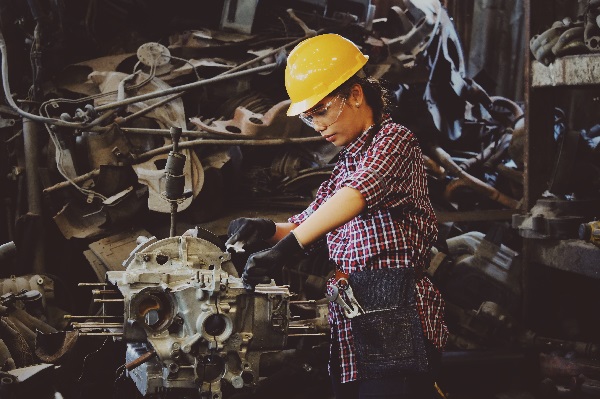Are you considering purchasing used industrial equipment? That’s in order! Used machinery can give great value for money and deliver safety risk assessment exceptional production, just like new machinery. But used equipment may also sabotage your production, and therefore, you may be unsure whether this is the way to go.
Granted, it’s not a simple task, especially if you don’t know anything about the equipment you intend to purchase. Luckily, we’ve devised this 4 step guide to help you in your search for used industrial surplus equipment.
1. Review The Equipment’s History
Before you can sign the cheque, you need to first review the history of the equipment. When was it bought? Are there receipts to prove it was bought and not stolen? How many previous users have had it?
Verify the equipment’s title and keep in mind that if the balance is not paid in full, ownership can be transferred. Before buying used industrial equipment, make sure the essential papers are there to demonstrate a lien. To determine whether or not there are liens on second-hand industrial equipment, you could contact the bank.
They ought to be in a position to point you in the direction of the right agency to assist you in locating any outstanding liens. More than that, make sure that the supplier is reputable to avoid purchasing stolen equipment. Even better, you can make note of the used equipment’s serial number and PIN and then get in touch with the authorities to learn more before purchasing it.
2. Examine the Machine for Wear and Tear
It’s a used good, so it’s bound to show traces of use, but make sure it’s not too run down. Naturally, you must ensure that there is not much harm. All the essential working parts should be in great condition. That said, look for any corrosion, rust, or hairline fractures that could cause serious equipment breakdowns if left unattended.
If the equipment is too damaged (no matter how cheap it was), it could cost a lot of money to maintain, almost as much as buying a new machine. If you discard it, you will lose your initial investment and face costly downtimes before you replace it. Since you may not spot some issues, look for an experienced guru who knows their way around the nitty-gritty.
3. Check The Operating Period
After how long did the seller decide to put the machine up for sale? This timeframe will play a significant role in determining the machine’s overall effectiveness. It may have been sold shortly after purchase because it was offering minimal value yet is costly to maintain.
In such a situation, you would be lucky to buy an almost new machine, especially if it will be a vital part of your production process. Remember that how new it is will determine its efficiency and operational hours. Look out for used second-hand equipment that has had several users that sell after a short while—it’s a major red flag!
4. Verify the Seller’s Credibility
It’s important to research the vendor before purchasing used equipment. Understand who they are beyond the deal. Verify their dependability and check to see whether they have references. You could use online references, or even visit a previous client and discuss their experience.
If you have any issues finding information about the seller, that’s another major red flag! Try paying them a visit in person and request a list of recommendations as well. In this manner, you need to be able to decide if they are genuine sellers whose words can be trusted.
Final Thoughts
Industrial equipment can be expensive. It doesn’t matter whether they are new or used. Having said that, conduct your due diligence to safeguard your investment. If your supplier is credible, they will even offer warranties on used goods.





